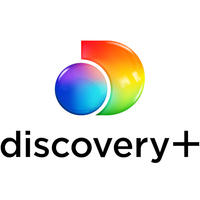How to watch Frozen Planet 2: stream online from anywhere in the world
Here's how to watch Frozen Planet 2 and dive back into our planet's coldest climates with David Attenborough.
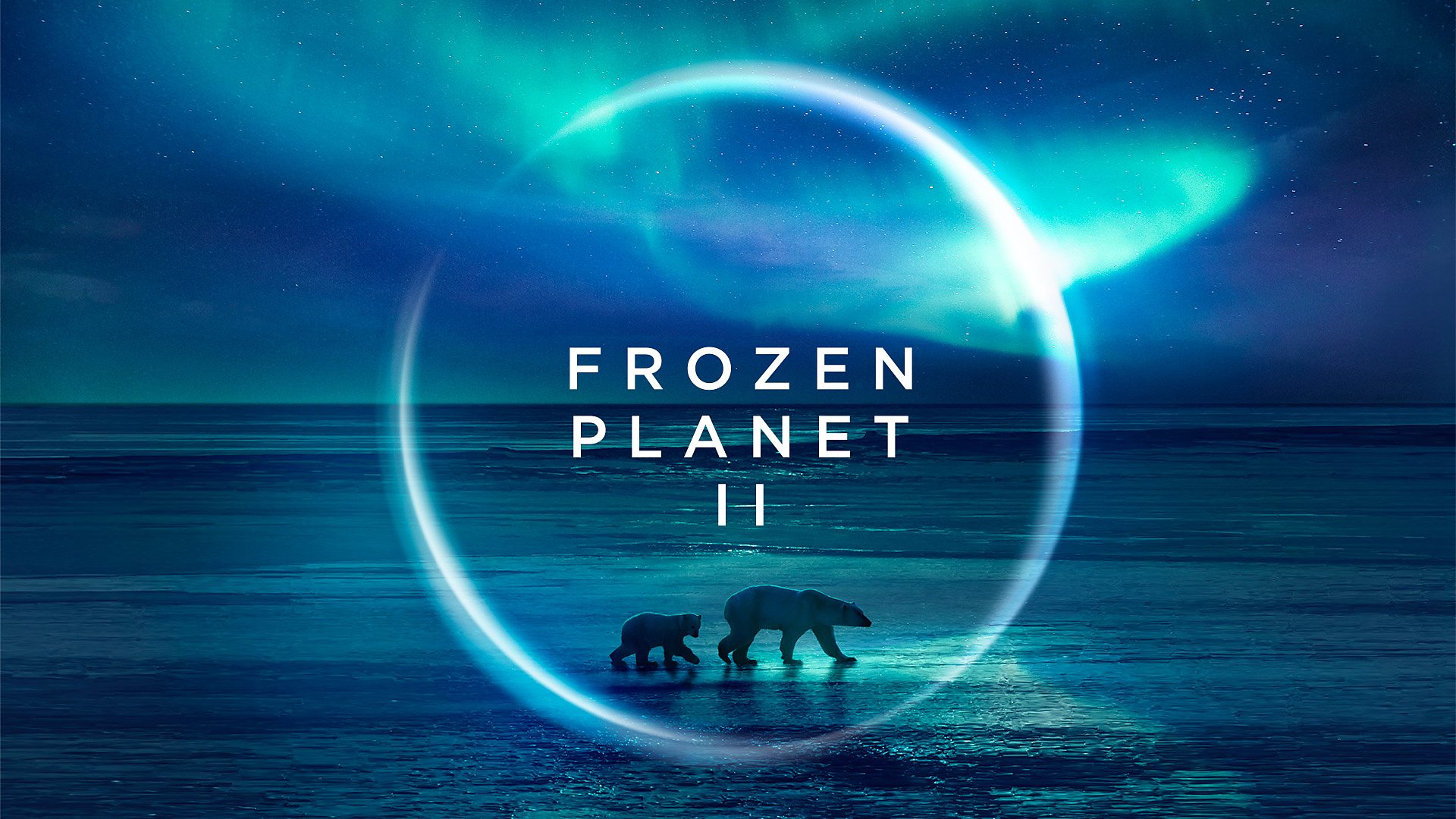
If the cold never bothered you anyway, then check out our guide on how to watch Frozen Planet 2 online.
Step into the winter season with David Attenborough. Frozen Planet 2 is here, and ready to transport you to the frozen ecosystems few of us will ever see or comprehend. This viewers guide will provide you with the highlights and recommendations for enjoying this series. Viewers may be familiar with the BBC Earth series which utilizes modern technology and long-term filming to capture the most remote regions of the planet.
Shot in exquisite detail, narrated by the legendary David Attenborough, and scored by the also-legend Hans Zimmer, this series is an excellent primer for the cold season ahead. Utilizing drone technology and ingenious composite footage, this series will transport you to the most remote regions of our world and show you ecosystems beyond imagination.
The entire series is now available to stream in the UK on BBC iPlayer, but if you're based in the US or anywhere else in the world, we've got tips on how you can watch Frozen Planet 2 below.
If you want to watch more great documentaries, check out our Shark Week streaming guide. We've also got streaming content for dinosaur fans and future paleontologists with our guide on how to watch Prehistoric Planet (and for something a little less scientifically accurate, but just as entertaining, we've got our Jurassic Park streaming guide too).
How to watch Frozen Planet 2?
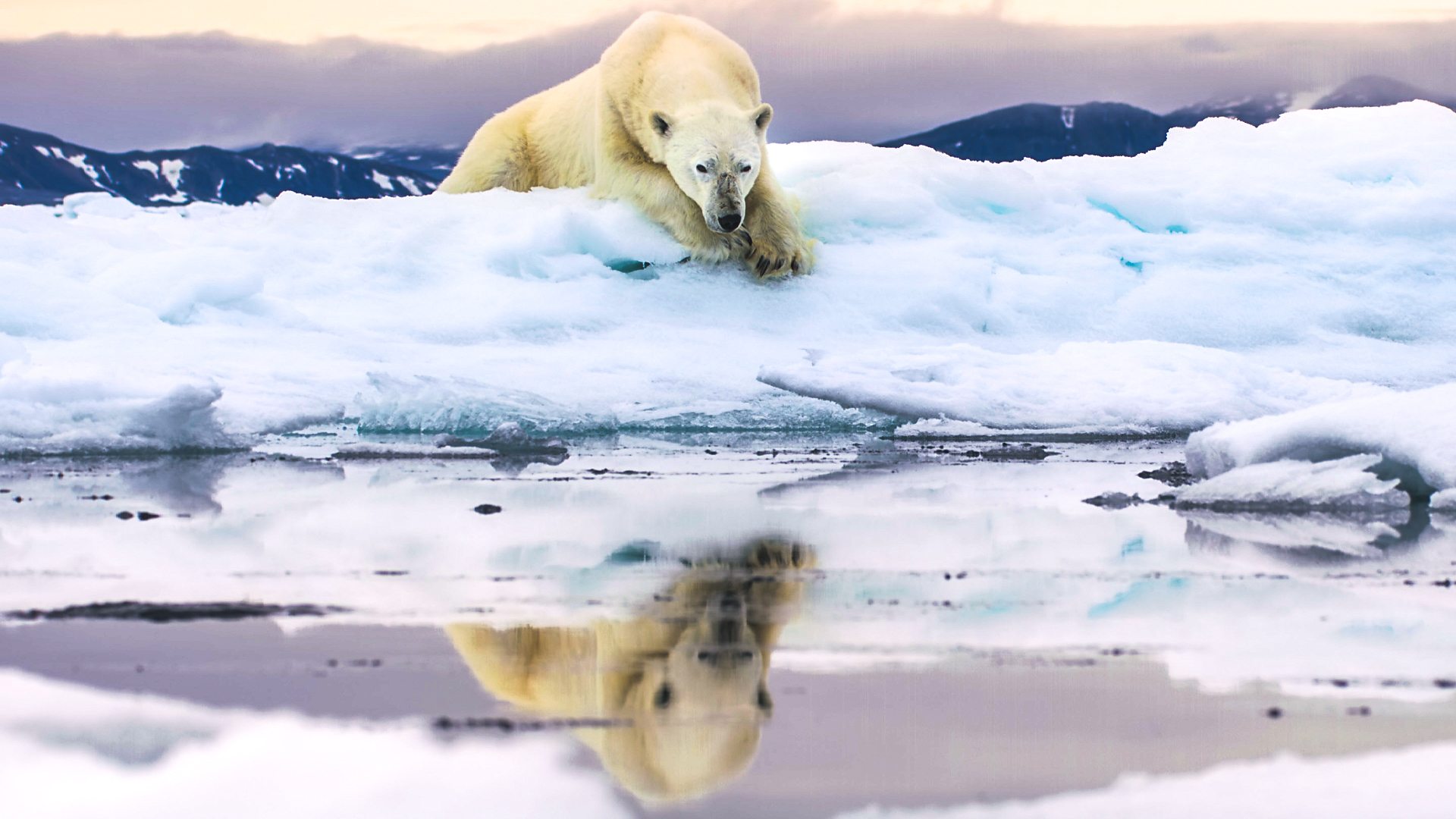
Frozen Planet 2 is best enjoyed paced out, and can be viewed solo or with a partner and/or children who can stomach the occasional brutality of nature. Recommended with a blanket and warm beverage, this series continues the perfect blend of relaxing viewing, travel wanderlust, and learning opportunities.
The entire series was released weekly from 11 September to 16 October 2022 and is now fully available to stream on BBC iPlayer. BBC iPlayer isn't available in the US, but scroll down to the VPN section to find out how you can still watch the series online.
The first Frozen Planet series is available to US viewers on HBO Max or Discovery+ with a subscription. If you don’t have either service, Frozen Planet (the first series) is available to rent or purchase on Amazon Instant Video, Vudu, and Google Play.
Watch Frozen Planet 2 on BBC iPlayer for free
You can watch Frozen Planet 2 in its entirety on BBC iPlayer if you're based in the UK, or from anywhere when you're using a VPN.
Watch the original Frozen Planet on Discovery+ with 7-day free trial
Watch Frozen Planet and loads of other great documentaries on Discovery+ for free with the 7-day free trial. After that the service costs $4.99/mo (with ads) or $6.99/mo (Ad-free).
Watch the original Frozen Planet on HBO Max from $9.99/mo or $99.99/yr
Alternatively, you cans sign up to HBO Max and watch the original Frozen Planet plus loads of other great shows. If you want the add free plan, that costs a bit more at $14.99/mo or $149.99/yr.
Watch in the U.S. with a VPN
Until Frozen Planet 2 is available abroad, BBC iPlayer can be accessed through a VPN for those overseas. A Virtual Private Network (VPN) is a recommended security measure for masking your location online and can access region-specific content depending on where the host server is located. There are many available but we'd recommend either ExpressVPN or SurfShark which both offer a multitude of security options at a very reasonable price.
ExpressVPN - $8.32/mo for a 12-month plan
Sign up to ExpressVPN and access content from anywhere in the world. The yearly subscription offers the best value, but you can also get a one-month plan for $12.95. There is a 30-day money-back guarantee too.
Frozen Planet 2 trailers
The official trailer for Frozen Planet 2 comes in brief at around 30 seconds but offers some of the best visual highlights from the series, enticing you for what delights await over the six full episodes.
In addition, this region-free “First Look: Frozen Planet II ft. Camila Cabello and Hans Zimmer” from BBC Studios features a haunting musical composition of global superstar Camila Cabello’s vocals alongside legendary composer Hans Zimmer in the original piece “Take Me Back Home”. It showcases some of the best visuals of the series and leaves you wanting to explore these unique regions further.
What is Frozen Planet 2?
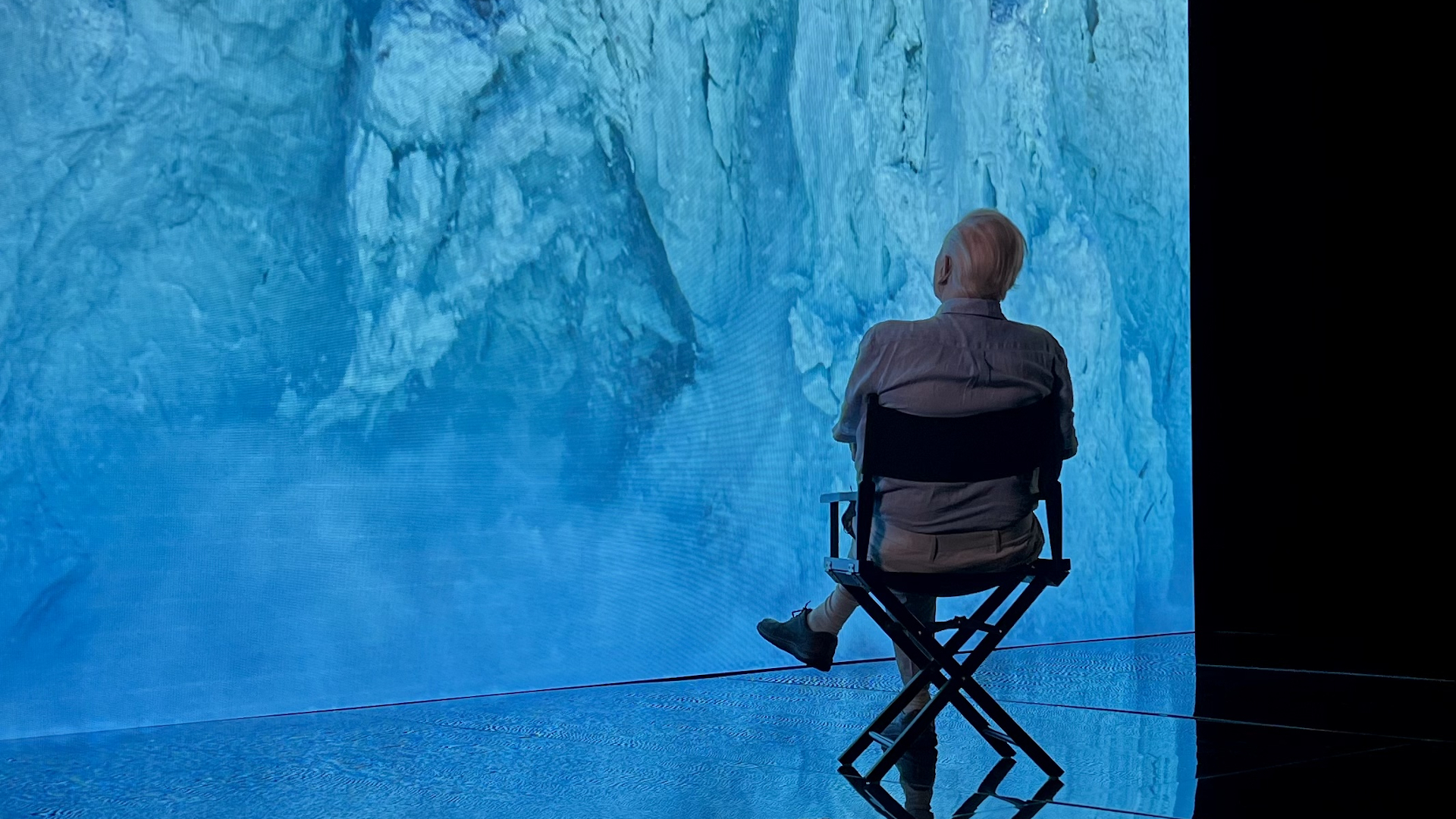
This follow-on to the 2011 series Frozen Planet takes us further than the polar focus of the first. It explores all the frozen regions found across our globe, from the Rocky Mountains to the Siberian Forests, to ice-cold oceans and frozen deserts. This series also takes advantage of improved technology from the interim decade, particularly in the use of drone cameras and infrared-based night vision. The drone technology allows the crew to capture monumental events such as glacial calving and avalanches, while the night vision gets up-close-and-personal to a midnight puma attack.
The series does not shy away from addressing the impacts of climate change and how that affects everything from individual species’ survival to our entire planet’s precious equilibrium. Peppered throughout each episode is a reminder of how things have changed in just the short decade between both series. The show particularly does an effective job of utilizing time-lapse satellite photography to demonstrate tangible changes to ecosystems over such a short period of time.
Episode guide
Spoiler Free Recommendations
For those new to these series (hey, life can take us in many directions!), the best recommendation is the very first episode: Frozen Worlds. It’s a good primer / “best of” the entire series. For a change of pace, it’s worth watching the last episode as well: Our Frozen Planet. It leaves behind the nature documentary format and takes a deeper look at the scientists researching climate change and the effect on different environments. Finally, it’s also worth noting that the last ten minutes of each hour-long episode is a “behind the scenes” mini-doc about what it was like shooting one of the sequences from that particular episode.
Spoiler-free personal recommendations: the episode with the most bizarre animal behavior was definitely Episode Two: Frozen Ocean, the most horrifying animal behavior was Episode Three: Frozen Peaks, and the most fascinating animal behavior was no question Episode Four: Frozen South. See below for spoiler-specific references.
Frozen Planet - Episode One: Frozen Worlds
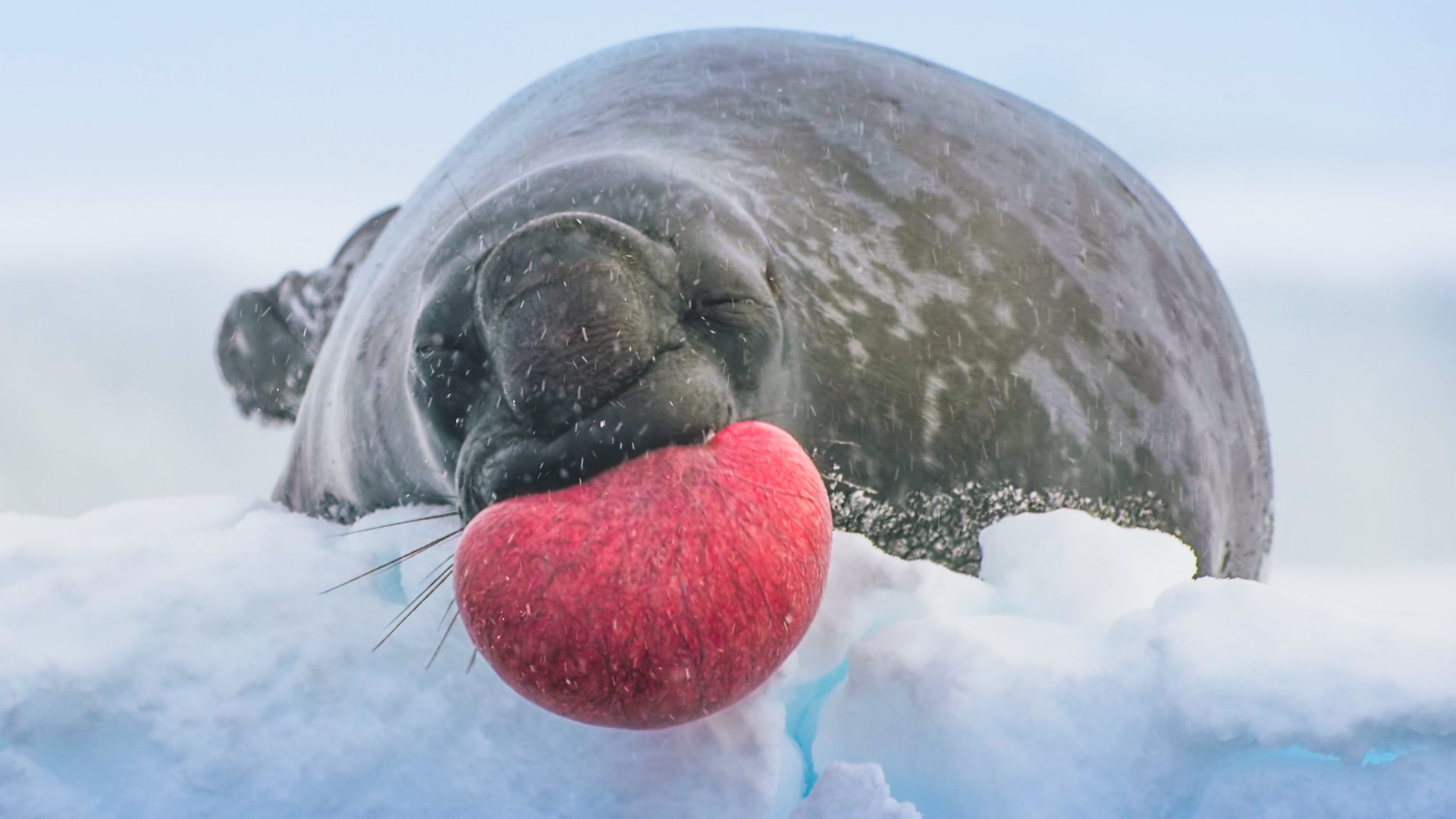
As mentioned in the Spoiler Free Recommendations, if you’re only going to watch one episode, Episode One: Frozen Worlds (11 September 2022) brings the most balance in terms of depicting the theme of the series. This episode covers highlights from pole to pole. It begins in Antarctica and shows the life of Emperor Penguins as well as Killer Whales hunting seals.
It then travels through the Himalayas to the Great Steppe. We get some wonderful shots of the “world’s grumpiest cat”, the Pallas’s Cat before continuing to the Boreal Forest and Siberian Tigers. Continuing on through the Arctic Tundra through Greenland before highlighting some spectacular icebergs and how ice loss is affecting Polar Bears.
The “behind the scenes” segment follows an isolated film crew trying to capture iceberg calving with drone technology. This episode is the “best of” Frozen Planet 2 and if you’re only going to watch one, watch this one.
Frozen Planet - Episode Two: Frozen Ocean
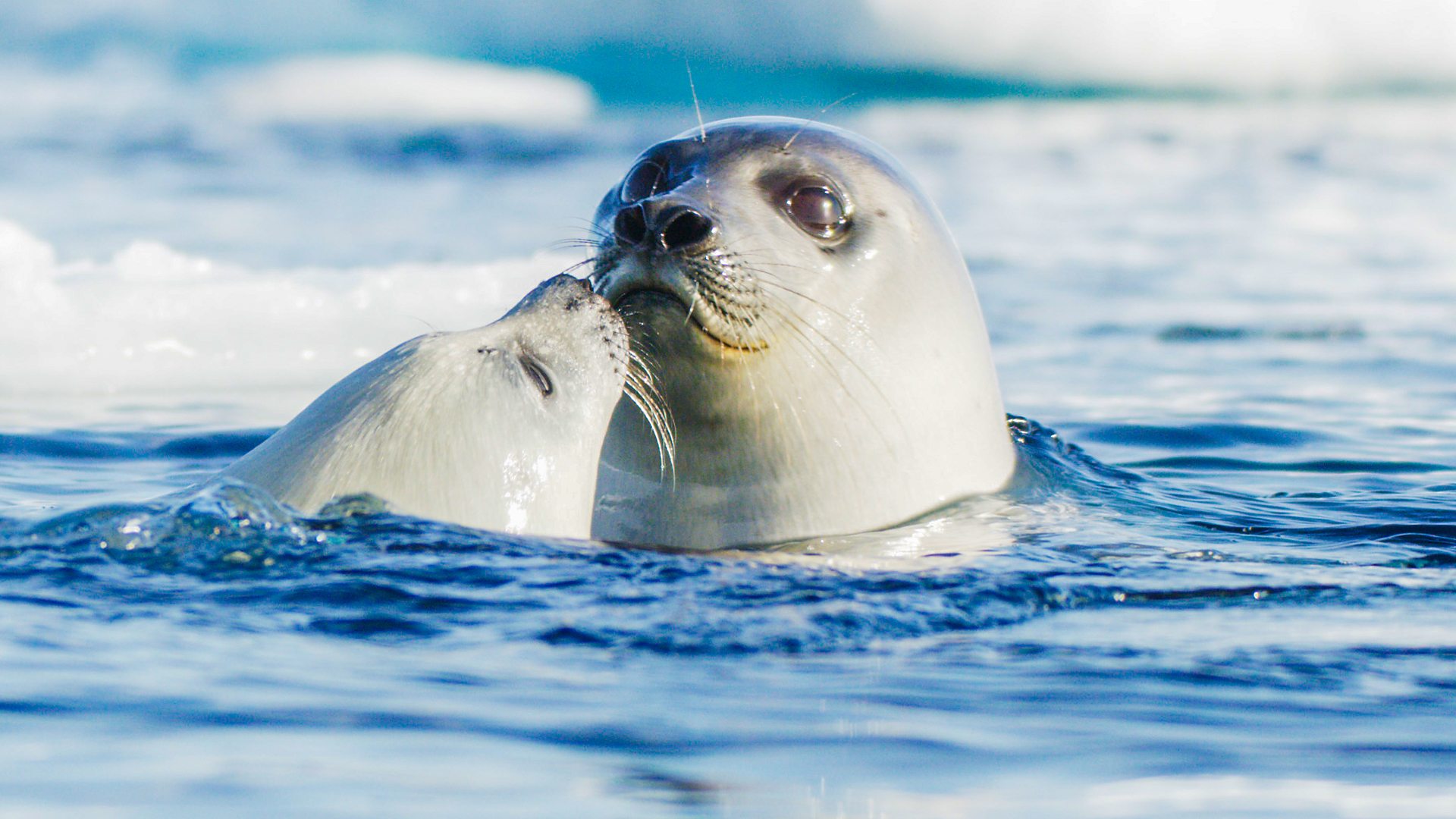
Episode Two: Frozen Ocean (18 September 2022) explores the arctic and worlds of water and ice. Featured animals include Polar Bears, Beluga Whales, Harp Seal pups, Plankton and Skeleton Shrimp (particular highlights of weirdness), the Bowhead Whale (the longest-lived whale), Killer Whales, Crested Auklets and their very memorable mating practices, and last but not least: sunbathing walruses in a slightly grotesque dance between sea and land.
The “behind the scenes” highlights the difficulties of trying to capture the rearing of Harp Seals, with only a twelve day window in treacherous waters.
Frozen Planet - Episode Three: Frozen Peaks
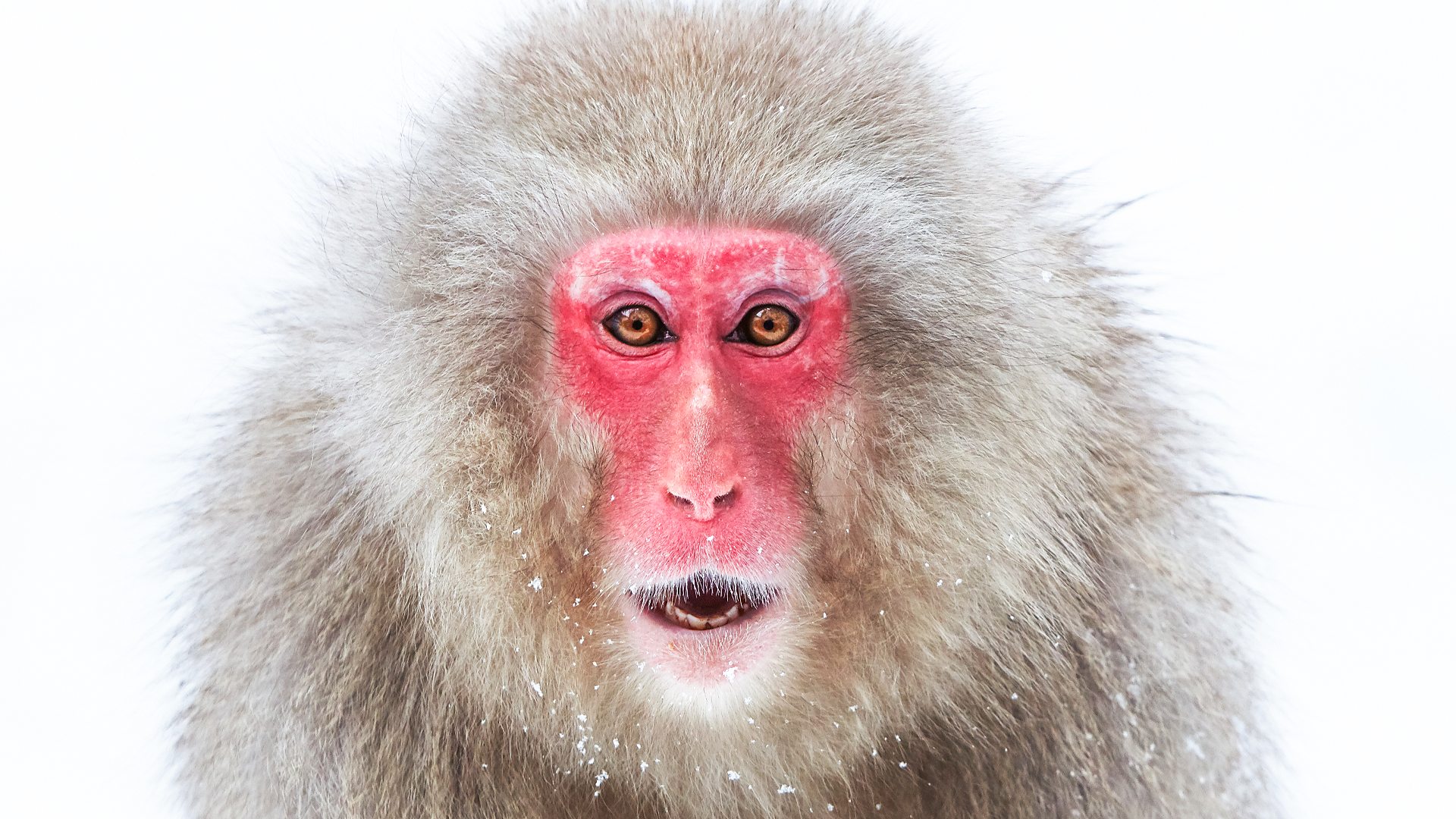
Episode Three: Frozen Peaks (25 September 2022) offers spectacular vistas of mountain ranges. Featured animals include Chameleons, Golden Eagles hunting mountain goats, Japanese Macaque primates, Kea parrots, Pumas, Flamingos, and Pandas. The memorable scene from this episode is definitely the Golden Eagles trying to pick up mountain goat kids and dropping them from great heights.
The coordinated attack patterns are spectacularly captured and the execution will leave you with your jaw on the floor. The “behind the scenes” section focuses on tracking the Puma in the Andes (South America) and trying to capture their midnight hunts.
Frozen Planet 2 - Episode Four: Frozen South
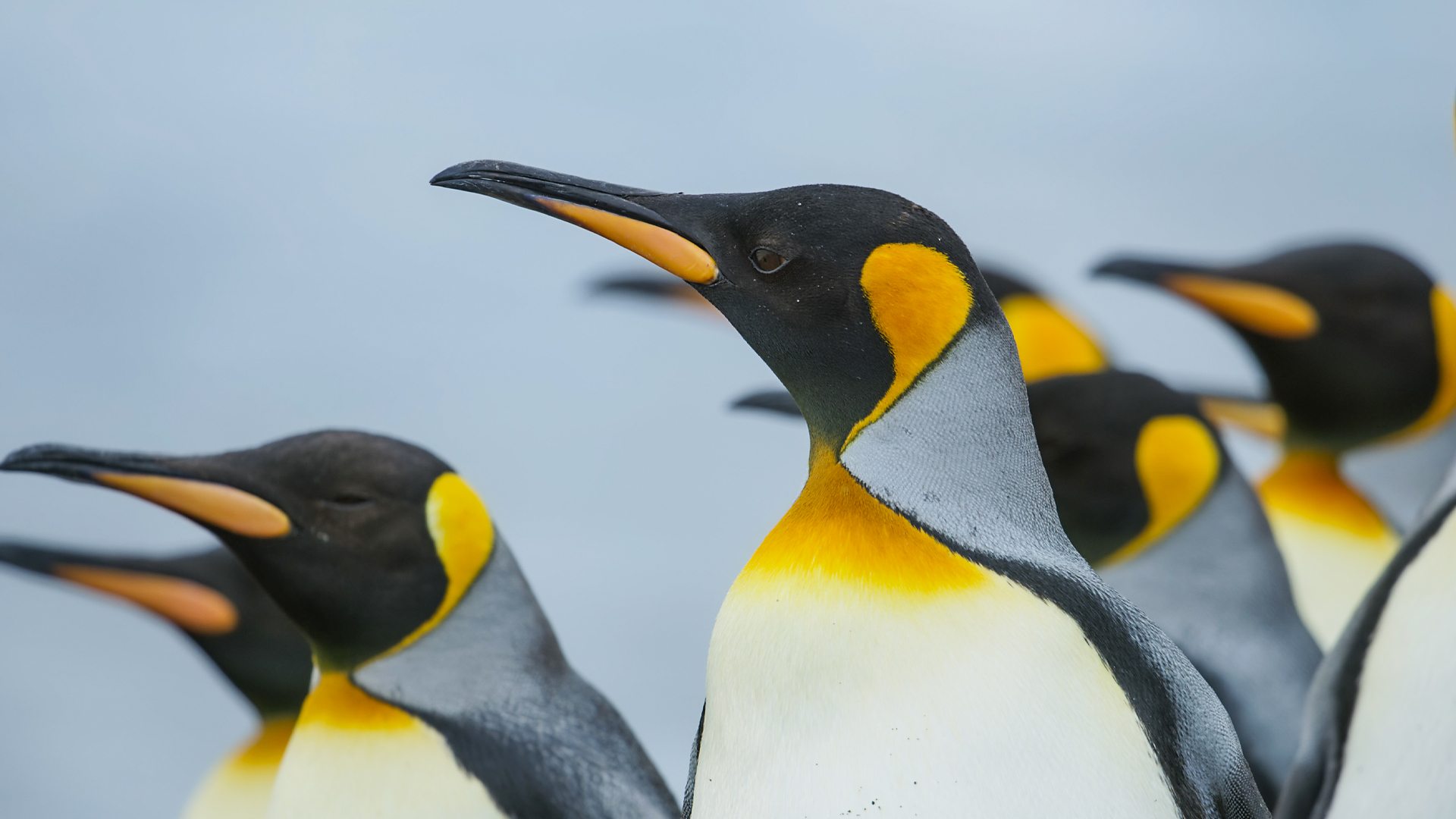
Episode Four: Frozen South (2 October 2022) turns to the various frozen regions of the Southern Hemisphere. Featured animals include King Penguins and Leopard Seals, Antipodean Albatross, Blue Whales, Weddell seals, Chinstrap penguins, Killer whales, Snow petrels, and giant stromatolites that hint at possible life on other frozen planets.
There are multiple memorable animal moments in this episode, but the highlight is also the one from the “behind the scenes” segment: the Killer whale “wave washing” technique for hunting seals, one rarely captured on camera and absolutely stunning to witness.
Frozen Planet 2 - Episode Five: Frozen Lands
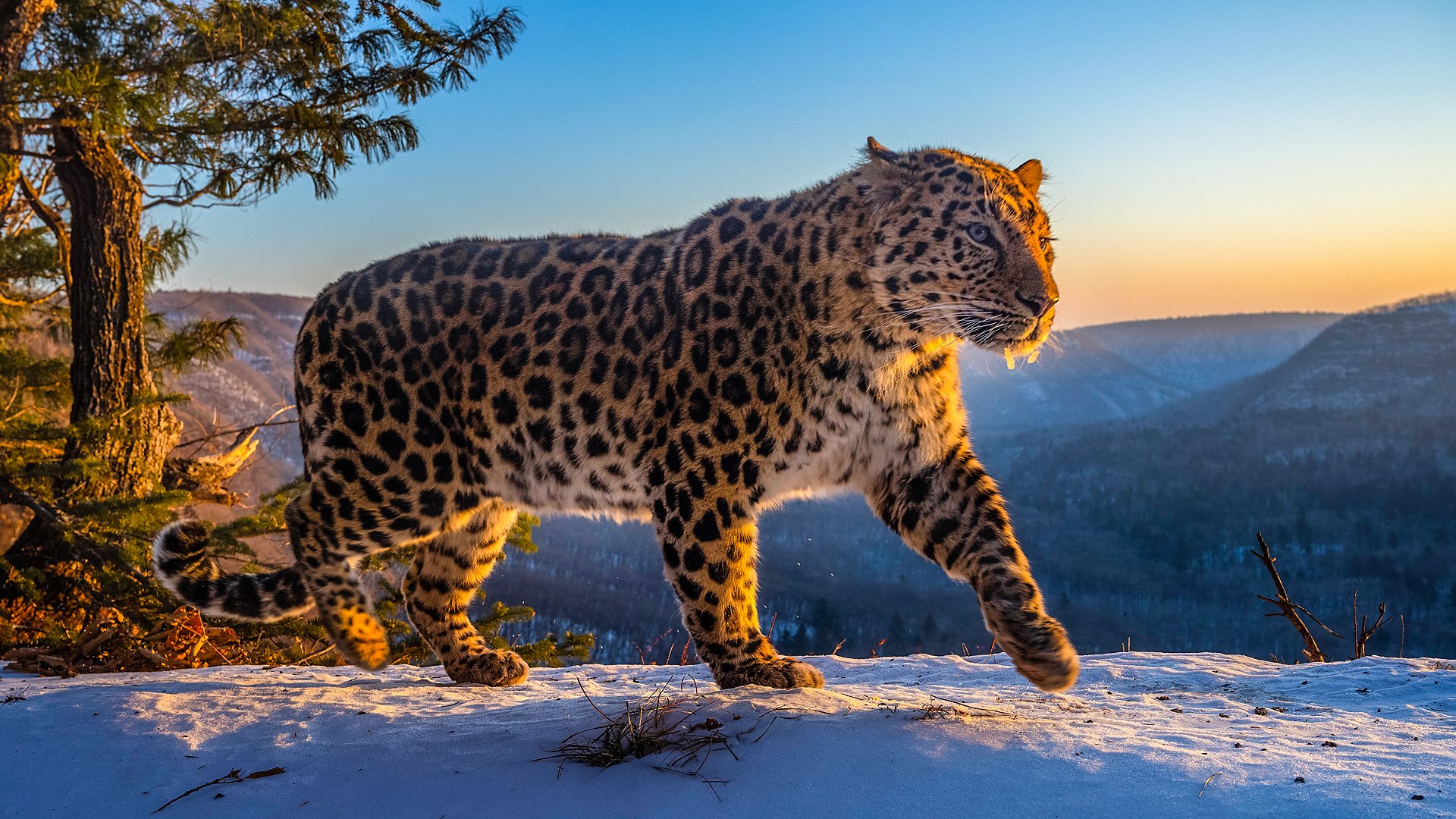
Episode Five: Frozen Lands (9 October 2022) focuses on the vast expanse of forests and tundras. Featured animals include: a wolf pack hunting bison, an Arctic fox hunting lemmings, the Amur leopard and Siberian tiger in an exquisite dance within the same territory, the Painted turtle and Lapland bumblebees waking from months of hibernation, Snowy owls, and Grizzly bears hunting Caribou.
The “behind the scenes” segment focuses on capturing the “super pack” of wolves hunting a herd of bison, trying to land a ground film crew who has to track and carry equipment across Northern Canada.
Frozen Planet 2 - Episode Six: Our Frozen Planet
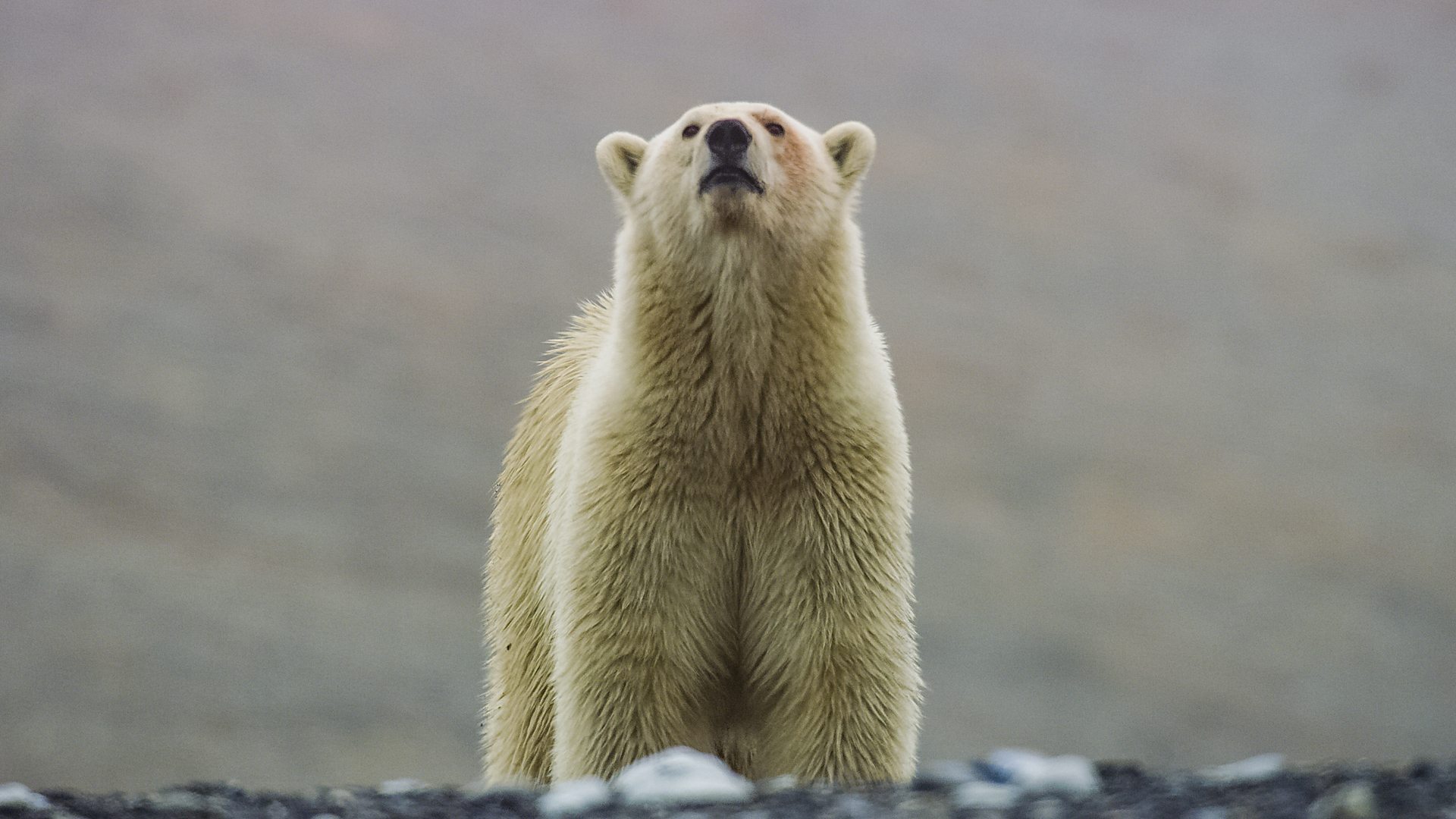
Episode Six: Our Frozen Planet (16 October 2022) takes a tonal shift in focusing on the biologists and climate scientists studying these frozen regions. It fully confronts the impact of human-caused climate change and how it has already, and continues to, influence the precious isolated frozen biomes. Featured scientists and regions include glaciologists as well as researchers studying baby harps and polar bears.
The episode then turns to human civilizations, exploring a group of Inuit hunters in Greenland and how hunting grounds have been disappearing. Taking to the skies, we see impacts from the perspective of the International Space Station and Helicopter-based radar systems.
Finally we visit a researcher who has spent his entire life studying the Adelie penguin and how the studies over the decades witnessed full colony extinctions. This episode is a necessary reflection on how our actions are negatively affecting the delicate balance of species’ existence and isolated biomes.
Sign up for the Live Science daily newsletter now
Get the world’s most fascinating discoveries delivered straight to your inbox.

Erin Macdonald holds a PhD in Gravitational Astrophysics from the University of Glasgow, and currently works as a writer, producer, and science consultant in Los Angeles. She recently published Star Trek: My First Book Of Space, a baby board book and also wrote and narrated the Audible Original The Science Of Sci-Fi which made the Top 10 Bestseller List in March 2020. She has written a number of videos for the YouTube channel Extra Credits on science in video games. Additionally, she has been a contributing author to publications such as StarTrek.com, SyFy Wire, and LiveScience speaking on space, science, and the intersection with science fiction. She is also the science advisor for the entire Star Trek franchise, a job which started in 2019 and continues to this day.

